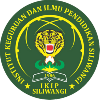AN ANALYSIS OF INTERJECTION EXPRESSION FOUND IN DIGITAL COMMUNICATION VIEWED PRAGMATIC PERSPECTIVE
Abstract
Interjection was an important part of language used to express feelings or emotions under any circumstances. In Digital communication, interjections were often used to express feelings quickly and efficiently. The purpose of this research was to describe the expression of interjections in digital communication. This research used qualitative research. The method used in this research was the descriptive method. Digital communication, WhatsApp user was the subject of this investigation in WhatsApp Group. The object of the research was the text used in conversations within the WhatsApp group.The findings contained 6 type interjections from 12 data. There were Interjection of Annoyance, Interjection Admiration or Satisfaction, Interjection of Gratitude, Interjection of Hope, Interjection of Surprise, and Interjection of Call which were found as a consequence of the research. Annoyance was the most frequently used interjection.
References
Ababiel, S., Sabat, Y., &; Rio, H. (2023). The Politeness Principle Compliance Used in Ridwan Kamil’s Twitter Mourning Tweets. Project (Professional Journal of English Education), 6(5), 960-970.
Anwar, R. K., &; Rusmana, A. (2017). Digital Communication in The Form of Social Media in Improving Competence for Heads, Librarians, and School / Madrasah Library Management Staff in Kayu Ambon Village, Lembang District, West Bandung Regency. Dharmakarya: Journal of Science and Technology Applications for the Community, 6(4).
Apriliani, D., Handayani, S. F., &; Saputra, I. T. (2023). Implementation of Natural Language Processing (NLP) in the Development of Chatbot Applications at SMK YPE Nusantara Slawi. Techno. com, 22(4), 1037-1047.
Arsanti, M., &; Setiana, L. N. (2020). The Fade of Indonesian Charm on Social Media (A Sociolinguistic Study of Indonesian Use). Lingua Franca: Journal of Language, Literature, and Its Teaching, 4(1), 1-12.
Asprey, E., & Tagg, C. (2019). The Pragmatic Use of Vocatives in Private One-to-One Digital Communication. Internet Pragmatics, 2(1), 83-111.
Barthes, R. (2012). Elements of semiology. Basabation.
Ginting, R., Purwati, E., Arumsari, N., Pujiastuti, N. S., Kussanti, D. P., Dani, J. A., ... & Sari, A. A. (2021). Advanced Digital Communication Management. Insania Publishers.
Hasriani, S. P. (2023). Variety of Slang in Digital Communication. Indonesia Gold Group.
Kartika, A. E. (2019). Analysis of the Meaning of Interjection in the Drama Script Ballad of the Widow Hom Pim Pa by Ahmad Badren Siregar.
Lockyer, D. D. (2018). Affixed Interjections in English and Polish: A Corpus-Based Study of Emotional Talk in Digital Communication and Literary Dialogue (Doctoral dissertation, University of British Columbia).
Mendu, S., Boukhechba, M., Baglione, A., Baee, S., Wu, C., &; Barnes, L. (2019, January). SocialText: A Framework for Understanding the Relationship Between Digital Communication Patterns and Mental Health. In 2019 IEEE 13th International Conference on Semantic Computing (ICSC) (pp. 428-433).
Mujahidah, M. (2021). (Peer Review) Basic English for Young Learners.
Ng, L. L., &; Lee, S. L. (2019). Translanguaging Practices and Identity Construction of Multilingual Malaysian University Graduates in Digital Media. English Teaching & Learning, 43(1), 105-123.
Pustikayasa, I. M. (2019). WhatsApp Group as a Learning Medium. Widya Genitri: Scientific Journal of Hindu Education, Religion and Culture, 10(2), 53-62.
Salam, M. (2020). WhatsApp: Presence, Learning Activities, and Learning Outcomes. Jurnal Pendidikan Matematika, 11(2).
Saifudin, A. (2019). The Theory of Speech Acts in the Study of Pragmatic Linguistics. Lite: Journal of Language, Literature, and Culture, 15(1), 1-16.
Searle, J. R. (1976). A Classification of Illocutionary Acts1. Language in society, 5(1), 1-23.
Surjadi, E. V., & Aryanto, B. (2022). Interjection by Commentators in Identity V E-Sports Tournament. Japanese Research on Linguistics, Literature, and Culture, 4(2), 104-113.
Downloads
Published
Issue
Section
License

This work is licensed under a Creative Commons Attribution-ShareAlike 4.0 International License.











